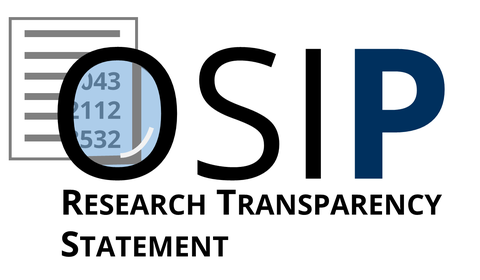Stefan Scherbaum
 © StS
© StS
Prof. Dr. Stefan Scherbaum
M.Sc. Cognitive Science
Consultation Hour
For the recognition of module credits and for any other matters, please come to my consultation hour. No appointment is required; a first-come, first-served principle applies within the available time.
Monday (during the lecture period): 4:00 p.m. – 5:00 p.m.
For credit recognition, please bring the prepared recognition forms in printed form, as well as all documents required for reviewing the recognition (transcript, module descriptions, either printed or digital).
Research
- Open Science Initiative of the Faculty of Psychology
- Signatory of the OSIP Research Transparency Statement
- Empirical recording and computational modeling of the dynamics of mental processes in the areas of
- Cognitive control, attention and action control
- decision-making
- Social coordination
- Investigation of systems-psychological methods for therapy and councelling
- Improvisational methods, conitive flexibility, and mental health
- Environmental psychology & sustainable behavior
Teaching
- Module M1 Methods of Psychology (BSc., 1st & 2nd semester)
- Module coordinator
- Lecture Introduction to the Methods of Psychology (WS)
- LectureExperimental Design and Sampling (SS)
- Module M5 Evaluation and Metaanalysis (BSc. 5th semester)
- Module coordinator
- Lecture & Seminar
- Module CAN6 Advanced Statistical Methods (MSc. CAN, 1st & 2nd semester)
- Module coordinator
- Module seminars in WS and SS
- Module coordination Module M4 Experimental Psychology (BSc., 3rd & 4th semester)
Supervision of theses and research internships
I am constantly offering topics for Bachelor's and Master's theses and research internships and look forward to hearing from you.
Committees and functions
- Chairperson of the Examination Committee of the Bachelor's degree program in Psychology
- Representative of the Faculty of Psychology on the Doctoral Committee of the School of Science
- Substitute representative on the Faculty Board
- Representative of the Faculty
- Contact person for good scientific practice
- Initiator of the Faculty's Open Science Initiative
- Co-founder of the german society for applied improvisation in therapy.
Publications
2018
-
No evidence for common processes of cognitive control and self-control, Jan 2018, In: Acta psychologica. 182, p. 194-199, 6 p.Electronic (full-text) versionResearch output: Contribution to journal > Research article
-
Biased and less sensitive: A gamified approach to delay discounting in heroin addiction, 2018, In: Journal of Clinical and Experimental Neuropsychology. 2, p. 139-150, 12 p.Electronic (full-text) versionResearch output: Contribution to journal > Research article
-
Substance and evaluation in personality disorder diagnoses., 2018, In: Journal of Personality Disorders. 32, 6, p. 766-783, 18 p.Electronic (full-text) versionResearch output: Contribution to journal > Research article
2017
-
Corrigendum: The N400 effect during speaker-switch-towards a conversational approach of measuring neural correlates of language [Front. Psychol.,7, 1854 (2016)] doi: 10.3389/fpsyg.2016.01854, 13 Jun 2017, In: Frontiers in psychology. Vol. 8. p. 998Electronic (full-text) versionResearch output: Contribution to specialist publication > Corrections (errata and retractions)
-
Attractor Dynamics in Delay Discounting: A Call for Complexity, 2017, p. 1041-1046, 6 p.Electronic (full-text) versionResearch output: Contribution to conferences > Paper
-
Let's decide together: Differences between individual and joint delay discounting, 2017, In: PLoS ONE. 12, 4, p. 108-116, 9 p.Electronic (full-text) versionResearch output: Contribution to journal > Research article
-
On the Relation Between the (Censored) Shifted Wald and the Wiener Distribution as Measurement Models for Choice Response Times, 2017, In: Applied Psychological Measurement. 42, 2, p. 116-135Electronic (full-text) versionResearch output: Contribution to journal > Research article
-
Step by step: Harvesting the dynamics of delay discounting decisions, 2017, In: Quarterly Journal of Experimental Psychology. 71, 4, p. 949 - 964Electronic (full-text) versionResearch output: Contribution to journal > Research article
2016
-
Approach-motivated positive affect reduces breadth of attention: Registered replication report of Gable and Harmon-Jones (2008), 2016, In: Journal of experimental social psychology. 67, p. 50-56, 7 p.Electronic (full-text) versionResearch output: Contribution to journal > Research article
-
Process dynamics in delay discounting decisions: An attractor dynamics approach, 2016, In: Judgment and Decision Making. 11, 5, p. 472 - 495, 24 p.Electronic (full-text) versionResearch output: Contribution to journal > Research article

